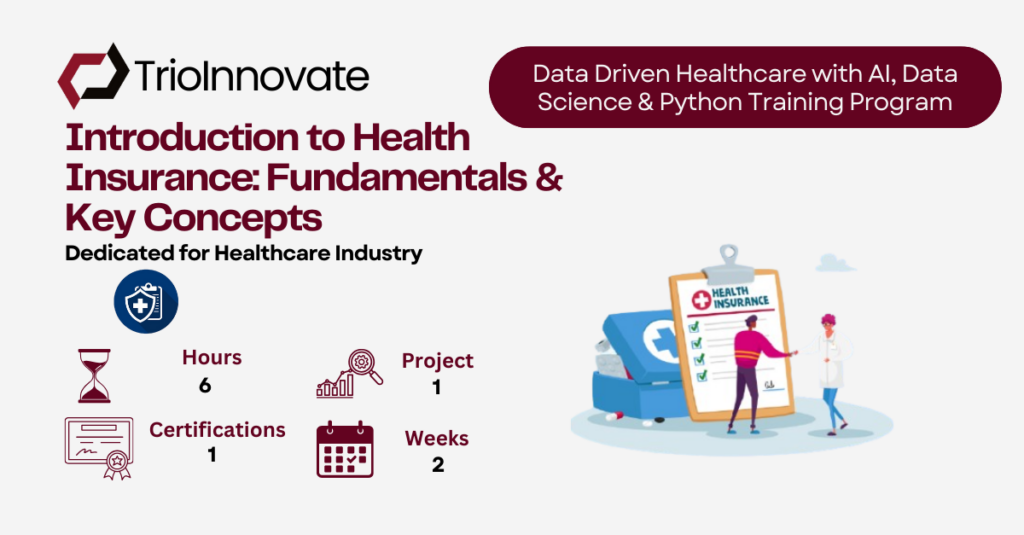Introduction to Health Insurance: Fundamentals & Key Concepts
This course provides an overview of the health insurance industry, covering fundamental concepts such as insurance plans, coverage models, and reimbursement processes. Participants will learn about key stakeholders, regulatory frameworks, and the role of insurers in healthcare. The course also explores risk management, cost-sharing mechanisms, and common terminologies. By the end, students will have a foundational understanding of how health insurance works and its impact on healthcare accessibility and affordability.
Course Overview
Key Skills
- Supervised Learning Fundamentals (Classification & Regression)
- Python for Machine Learning (Pandas, NumPy, Scikit-learn)
- Key ML Algorithms (Linear Regression, Decision Trees, SVM, k-NN)
- Model Evaluation & Metrics (Accuracy, Precision, Recall, F1-Score)
- Data Preprocessing & Feature Engineering
- Hyperparameter Tuning & Model Optimization
Course Outline
Introduction to Health Insurance Basics
Key principles of health insurance and types of plans
Lessons Objective
- Understanding Supervised Learning (Classification & Regression)
- Model Training & Evaluation
- Overfitting & Underfitting
Understanding health insurance terminology (premiums, deductibles, copays)
Lessons Objective
- Working with Scikit-learn
- Data Handling with Pandas & NumPy
- Data Visualization using Matplotlib & Seaborn
The structure of the healthcare industry and insurance markets
Lessons Objective
- Linear Regression
- Decision Trees
- Support Vector Machines (SVM)
- k-Nearest Neighbors (k-NN)
- Logistic Regression
Regulatory frameworks and policies related to health insurance
Lessons Objective
- Performance Metrics (Accuracy, Precision, Recall, F1-Score)
- Train-Test Split & Cross-Validation
- Hyperparameter Tuning
- Feature Selection & Engineering
Projects in this course
In this project, you will apply supervised machine learning techniques to predict customer churn for a telecom company. Using a real-world dataset, you will:
- Preprocess the data (handling missing values, encoding categorical features)
- Train and evaluate models like Logistic Regression, Decision Trees, and k-NN
- Compare model performance using metrics like accuracy, precision, recall, and F1-score
- Optimize models through hyperparameter tuning
- Visualize insights with Matplotlib & Seaborn
By completing this project, you will gain hands-on experience in classification problems, model evaluation, and real-world data handling.

Course Duration:
10 Hours
Earned Skills:
Python, Problem Solving, Supervised Learning Algorithms
Earn Certification:
Earned a valuable certificate to boost your resume


